Is Haiti Dangerous? Essential Travel Tips for Visitors
Haiti has a reputation for serious crime, but how safe is it for travelers? Our travel safety expert, Danielle Joseph, shares her tips.
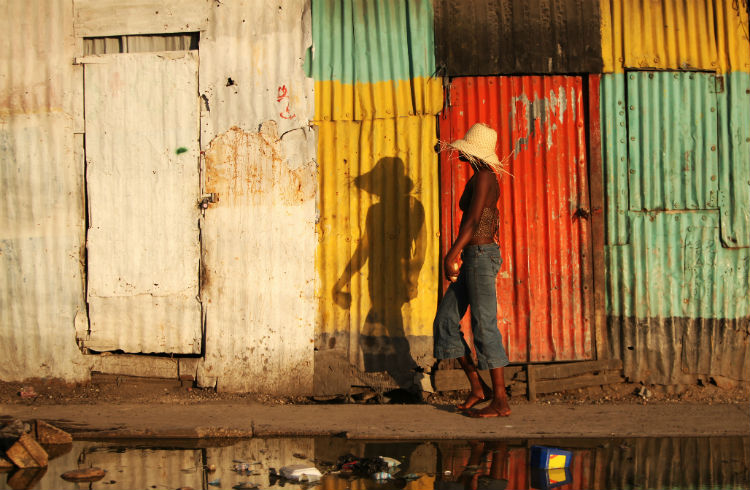 Photo © Getty Images/1001Nights
Photo © Getty Images/1001Nights
Several governments, including the US and UK, are warning their citizens not to travel to Haiti due to continuing civil unrest, violence, kidnapping and a high risk to personal security. Be aware that traveling to a "do not travel" destination may impact your travel insurance cover, and/or your ability to travel.
Located in the West Indies, Haiti shares the tropical island of Hispaniola with the Dominican Republic. The two countries are separated by a border.
Haiti’s cultural history runs deep. Led by former black slave, Toussaint L’Ouverture in 1804, it was the first nation to overthrow slavery and colonization. On New Year’s Day in 1804, Haiti was declared the first black-led republic.
The country’s lush landscape boasts beautiful beaches, mountains, impressive waterfalls, and historical landmarks. With a plethora of artisans, delicious fresh organic cuisine and festive music, Haiti is an intriguing tropical destination. However, political instability (including the assassination of its sitting President in July 2021) and natural disasters have led to a rise in poverty, crime, and a current reputation as an unsafe destination for tourists.
Here are our top safety tips you need to know before you consider taking a trip to Haiti.
- Crime in Haiti
- Haiti's background
- Travel and security experts' advice about traveling to Haiti
- The bad news about safety in Haiti
- Public transport safety
- Areas to avoid
- Safety during Carnival
- Civil unrest
- Safety arriving at Toussaint L'Ouverture Airport in Port-au-Prince
- Safety tips for travelers to Haiti
Crime in Haiti
Over the years, Haiti has suffered a number of devastating earthquakes and hurricanes. The country has still not recovered from the most damaging earthquake in 2010, which resulted in the death of over 300,000 people and left 1.5 million people homeless. The majority of Haitians live in poverty with little access to clean drinking water and basic needs.
Currently, there is a high level of crime in Haiti. Some areas are worse than others, but there is a very real danger of violent crime everywhere in Haiti, and this includes assault, armed robbery, murder, kidnapping, and rape. The exception is Labadee, an area leased by a cruise ship company. This private area is only accessible by the cruise passengers.
Serious violent crime can and does happen often. Never travel alone or late at night. Stick with your tour group or chaperone when outside of your hotel.
A resurgence of kidnappings in Haiti has led the US government to raise its travel advisory to Level 4 "Do Not Travel" in August 2021. Other violent crimes include carjacking, muggings and robberies, carried out mostly by armed criminal gangs.
The motivation for kidnapping in Haiti tends to be financial, and kidnappers don't discriminate based on age, gender, nationality, or race and even target children.
Some kidnap victims who are returned, after their families have paid a ransom, report being beaten, tortured, and sexually abused.
Haiti's background
Haiti is known for its gorgeous white sandy beaches, crystal clear water and coconuts trees, a truly unique island beauty.
However, it’s one of the poorest nations in the western hemisphere and the infrastructure was weakened by the massive earthquake in 2010.
The nation almost collapsed under the weight of the devastation. And sadly, the country has not yet recovered from this tragedy.
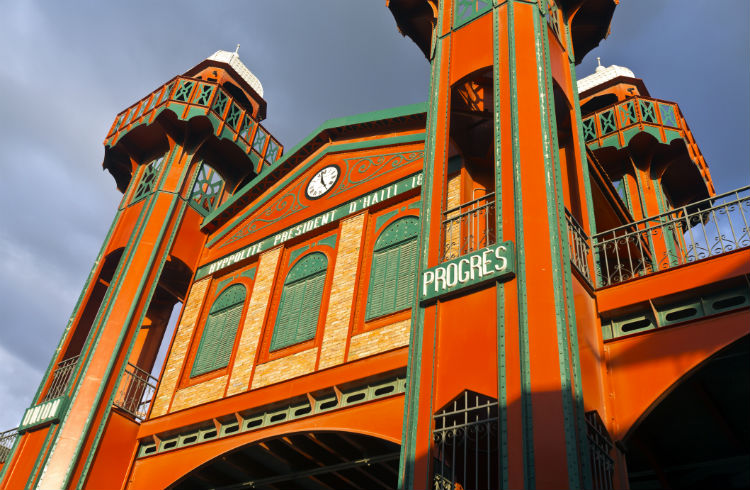
Travel and security experts' advice about traveling to Haiti
No doubt, Haiti is a beautiful country with warm and welcoming people and many travelers have weighed up the risks and explored the country.
I spoke with Raina Forbin, President of The Tourism Association of Haiti, and this is what she had to say, “When the inevitable question comes up, ‘Is it safe to travel to Haiti today?’, my heart is torn by the fact that one must be objective about the risk associated with this travel destination. At the Tourism Association of Haiti, we focus a lot of our efforts on urging the government to once and for all, fix the omnipresent insecurity issues that will allow for the reestablishment of a touristic market in Haiti.
We have a beautiful country that is definitely NOT the most dangerous in the Caribbean. However, the cocktail of bad press, lackluster infrastructure, and resources in place to fully secure our visitors; this means that some areas pose a great risk to the security of tourists, however some others remain very safe. The capital today is probably one of the most difficult areas to navigate and enjoy. This is due to the fact that the concentration of insecure areas is at its most in Port-Au-Prince. Nevertheless, our provinces are welcoming and beautiful, offering lots of opportunity for a revamped interest for tourists of all backgrounds. The access to some areas remains somewhat difficult due to gangs having control of some arteries leading to those provinces and areas that are farther away from the capital. We definitely don't advise tourists to travel to those at-risk areas.
As of February 2022, it is highly recommended to have the accompaniment of a local tour operator. We suggest having someone who is familiar with the country. With someone who has the resources needed to navigate the accessible and beautiful destinations that are open to tourists, a trip to Haiti can still be a pleasurable one. They will safely arrange commuting and activities in order to have a beautiful travel experience in Haiti.”
I also spoke with Guerline Emmanuel, managing director of BelleVue Tours in Haiti and here are her suggestions for travelers, “Haïti, like any other country such as Mexico, Brazil, The United States etc. is as safe as any of these countries. Of course, precautions to certain areas and/or cities needs to be taken or ignored totally when visiting.
Cap-Haïtien aka Okap, which has an international airport is receiving its fair share of international visitors. Some precautions travelers can take is to reach out to domestic and international travel and tour companies that understand the country, speak the language to help you navigate the terrain.”
Then I spoke with Herby Duverné, CEO of the security company Windwalker Group. Herby is also former Deputy Director of Security at Logan International Airport. Herby said, “When traveling to any foreign country you need to understand the risks and how to mitigate these risks. Situations can change at any time and at this time I would not recommend going to Haiti until things settle down unless you have a specific purpose. You should always check the government sites for travel advisories and security tips.” Herby then went on to say, “If you do decide to travel to Haiti now, you should use a tour company to help you navigate what to do and where to go on your trip.”
Given his expertise, I then asked Herby if he had any suggestions on airport arrival. He said, “Review the specific instructions from your tour group and what to do upon your arrival in Haiti. Before you leave for your trip, make sure you get a working phone number for the person picking you up and their physical description.” He indicated that there should be WIFI at the airport, so you can call your contact if needed.
Public transport safety
Criminals have been known to watch travelers arriving at the airport, follow them and then attack. Be highly vigilant when withdrawing money; always use an ATM or bank inside a hotel.
Do not use public transport including tap-taps, or motorcycles. Public transport has been the location of numerous stabbings, robberies, and kidnappings.
High crime areas to avoid in Haiti
There are some safe hotels and markets in Port-au-Prince and in other locations in Haiti, including Decameron, an all-inclusive resort and spa in Cote des Arcandins. However, you should not walk around Port-au-Prince alone, especially at night. Avoid the high-crime areas of Carrefour, Martissant, Cite Soleil, the Delmas road area, and Petionville.
Certain roads should also be avoided. The urban route Nationale #1, airport road (Boulevard Toussaint L'Ouverture) and the connecting roads to the New ("American") Road via Route Nationale #1 have been the locations of numerous incidents of violent crime including murder, robbery, and carjacking.
Safety during Carnival
Crime rates often increase during the holiday season of Christmas and Carnival, when large groups gather on the streets, dancing, singing, and partying. During live performances, the area can get very crowded, and pushing and shoving can occur. Individuals can get trampled as people rush the stage.
Also, often times, carnival floats become overloaded with people, causing brakes to fail and those in the crowd run the risk of being run over or injured.
Even though the events are celebratory, and most people are out to enjoy the music and dancing, violence can occur, and party goers should be vigilant of their surroundings.
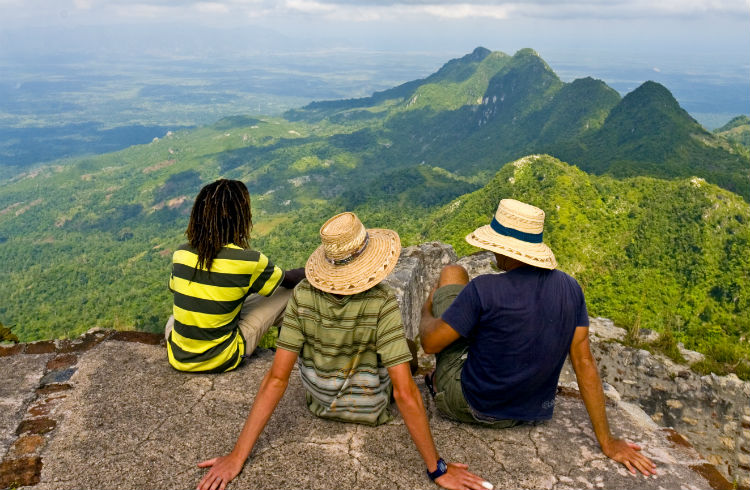
Political instability and chaos in Haiti
The major cause of the high crime rate is political instability. On 7 July 2021, President Jovenel Moïse was shot and killed in his private residence in Port-au-Prince. There are many unanswered questions, and the assassination has thrown the country into political turmoil as the current interim government has yet to find a solution to the crisis.
Chaos, protests, and demonstrations occur regularly in Haiti, sometimes turning violent with little to no warning. During these protests roadblocks, tire burnings and rock throwing may occur in the streets.
If you see a large crowd gathering, remain calm and leave the area quickly, avoiding confrontations along the way. The same rule applies in general if you see roadblocks. While you may be tempted to wander over to see what is happening, the best advice is to leave the area. If you are in a secure location stay put until you are advised that it’s safe to leave. This can often cause a delay in your travel plans or return home, but it’s better to wait out the situation then attempt to leave during a riot or roadblock.
Safety arriving at Toussaint L'Ouverture Airport in Port-au-Prince
Don’t allow anyone to assist with your luggage or other personal belongings.
Wait for your transportation inside if possible or in a populated area.
Stick with your tour group or chaperone at all times.
The airport is often very crowded, so don’t leave any of your belongings unattended.
If you need assistance, find someone in uniform to talk to.
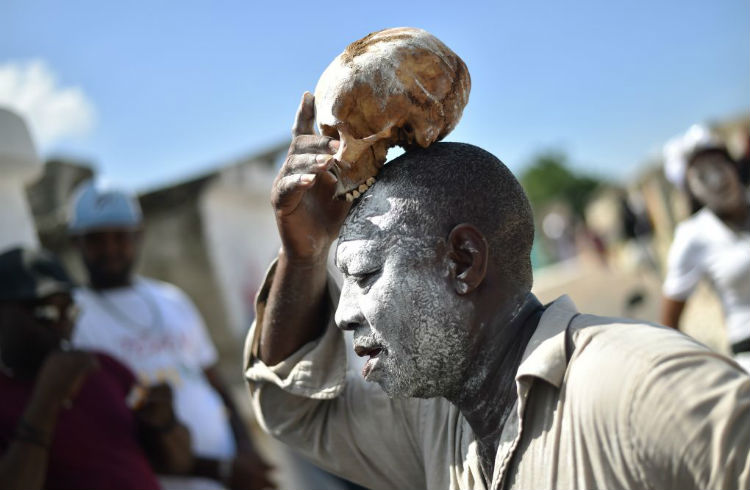
Safety tips for travelers to Haiti
- Avoid hurricane season, which falls between June and October
- Make adequate security arrangements for your trip to Haiti. If you're staying in a private residence, make sure there is a trustworthy full-time security guard
- Check the travel safety advisory status on your country of origin’s website
- Avoid using public transport of any kind
- Ask accommodation staff to call a taxi or arrange a driver to take you where you need to go. Then make sure you have the same arrangements to return to your hotel or residence
- If possible, travel with a reliable, established tour guide or tour operator that speaks Kréyol and is familiar with the country
- Be very careful at all times with your valuables, and don't flash your cash, your phone, or your camera
- Leave your jewelry at home, and don't dress to impress
- Ask for permission before taking a photo of people
- Chat with locals about where to go and where not to go.
Related articles
Simple and flexible travel insurance
You can buy at home or while traveling, and claim online from anywhere in the world. With 150+ adventure activities covered and 24/7 emergency assistance.
Get a quote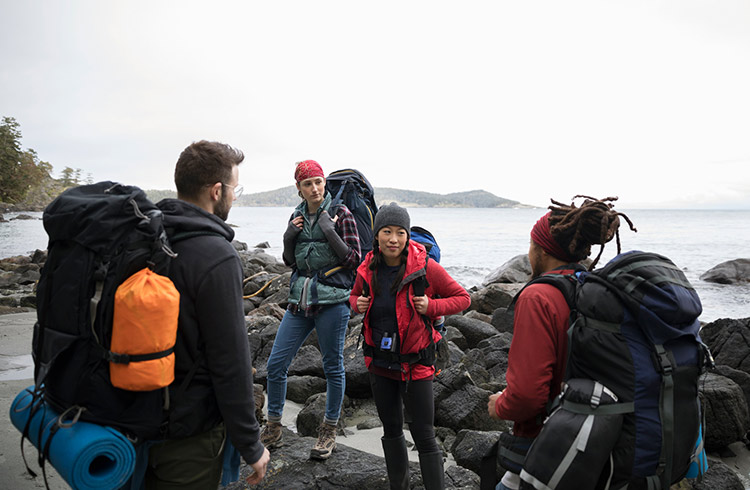

4 Comments
Shame on whoever wrote this article. Haiti is one of the safest country in the Caribbean. The inaccuracy in this article is repugnant. Visit Haiti! It is a beautiful and safe place to be. You will enjoy it.
You referred a guy stating that the DR is more violent than Haiti. That's debatable. I can assure you that kidnappings are extremely rare though (in the R that is).
I like this website it has some useful info on it but the "Travel and security experts' advice about traveling to Haiti" section was a complete waste of time.
It's the usual weirdos who think a country where 50/100/200 people can get killed, mutilated or burned alive at a time is no different or worse than elsewhere in the region.
Totally and utterly useless.
I would like to see Haiti and do it safely. Please give yo u r advice.
Bruce